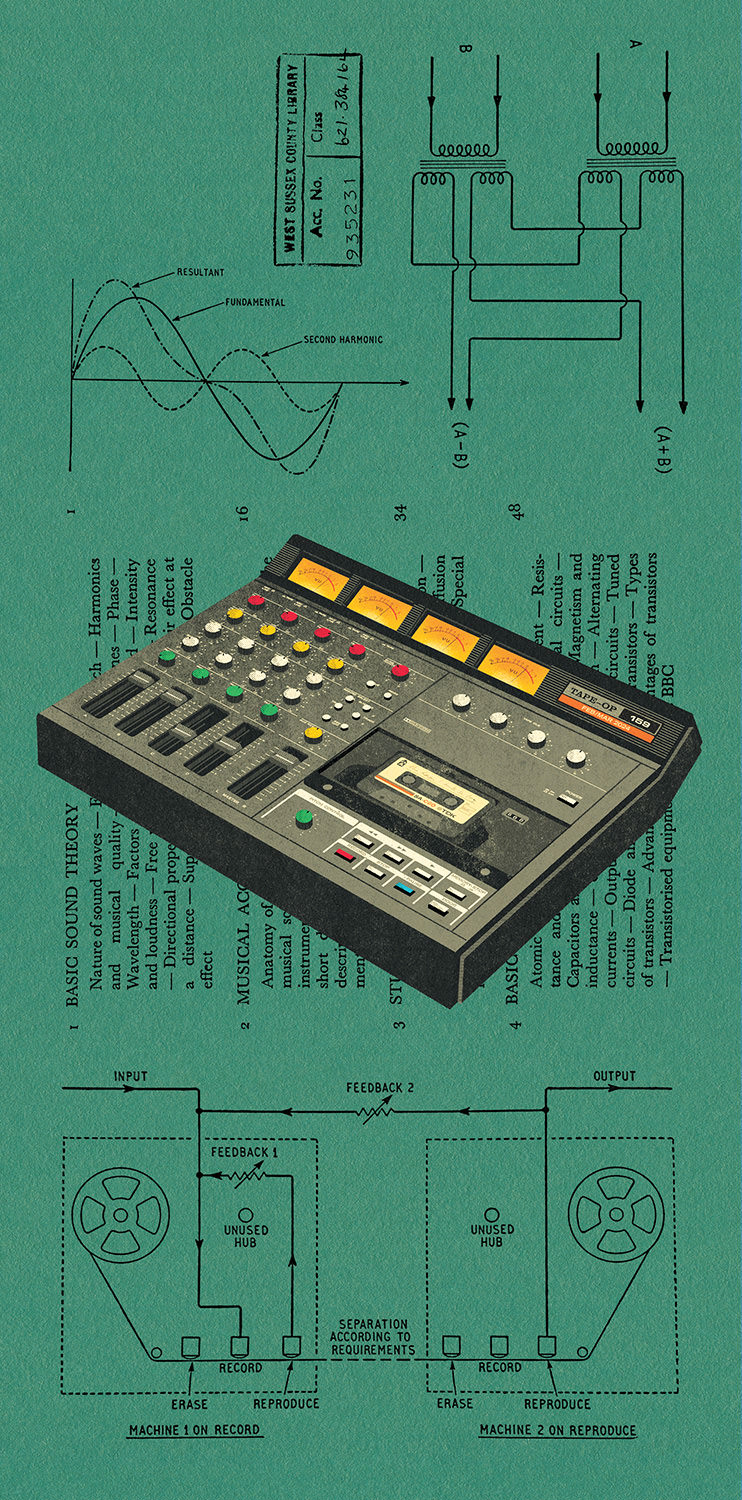I've written here before that I own dozens of cordless power tools from Bosch, Milwaukee, and Ryobi for the never-ending list of projects around the house, inside the garage, out on the dock, and of course, at the studio. These tools run on 12V and 18V LiFePO4 battery systems, and even the 12V tools have more than enough power to tackle most tasks. I recently purchased a handful of Ryobi USB Lithium 4V power tools <ryobitools.com>. These are hobby-grade tools based on a USB-rechargeable, single-cell 3.6 V ("4V") LiFePO4 battery platform. They're all extremely lightweight and therefore easy to handle for finesse work – and they're very affordable. The FVD50 Screwdriver seems to have a permanently discounted price of $29.97 at Home Depot, while the most expensive combos top out at $99, which is what I paid for the USB Lithium 4-Tool Combo Kit. Two battery packs, an LED lamp, a glue pen, a rotary tool, and the aforementioned screwdriver are all included. Although the screwdriver is the largest tool of the bundle, it's still very compact. Its handle can be turned to a 0° inline configuration or an 80° pistol grip. With a 1/4-inch hex collet that's geared down to 200 RPM, it has just enough torque to handle rack screws, and more torque than necessary to loosen the typical fasteners on rack gear chassis, 500 Series faceplates, and whatnot. The driver isn't equipped with an adjustable clutch, but if you hold the tool with the handle turned inline you can easily manage the driving force to prevent over-torquing or stripping fasteners. The FVM51 Rotary Tool is even smaller, and it feels more like a pen. Both its quick-change collet and its standard collar are compatible with Dremel accessories, so not only can it be used for sanding, carving, and cutting using standard bits, it can also be configured as a light-duty spiral cutter or drill press with certain add-ons. This 4V tool won't be replacing my 12V Milwaukee rotary tool or angle grinder for heavier tasks, but it's now my first choice for lighter work, like engraving travel mics, polishing electrical contacts, or reshaping plastic parts. The FVH56 Glue Pen is less like a pen; at first, I struggled to find an efficient way to hold it while operating the feed mechanism. Eventually, I settled on a grip that differs slightly from the one illustrated in the manual. An included drip-tray stand means that the glue pen itself doesn't have a pop-out stand or drip-catch that gets in the way when applying glue to tight spaces. I usually forgo the stand altogether because glue rarely drips from the tip. Startup time is a very quick 30 seconds, during which the power LED blinks until the tip has reached temperature. Given its compactness, the glue pen is perfect for tacking down wires or components inside guitar pedals or other small enclosures. The FVL56 Inspection Light is equipped with a magnetic base and a clip/hanger that allows for many mounting options, but you can also hold it like a flashlight. Twelve high-brightness LEDs arranged along a double-row bar emit 3 levels of light, with a maximum of 550 lumens; and the bar articulates on a 180° double hinge. Unfortunately, when the bar is folded fully over, which is its most compact configuration, the power switch is inconveniently covered by the bar. I actually prefer the FVL52K Flip Light, which I purchased separately for $29.97, and it's more convenient for behind-the-rack wiring. I also own the FVH67 Desktop Vacuum, which is shaped like a palm sander. It's great for picking up drill shavings from the workbench or crumbs off the producer's desk. At $49.97, the vacuum is one of the more expensive tools in the line – and therefore more of a splurge purchase – but as a whole, I'm impressed with the Ryobi USB Lithium platform.

